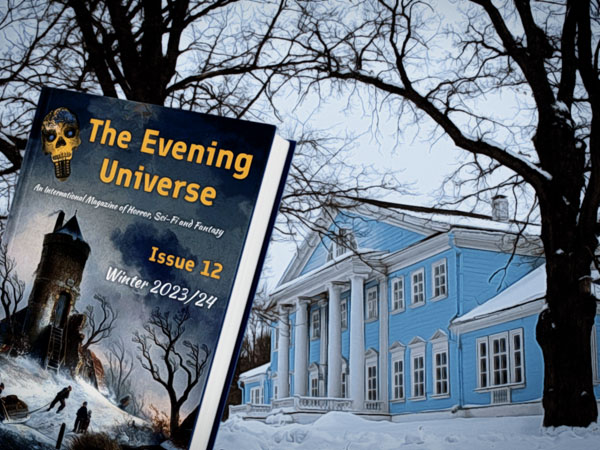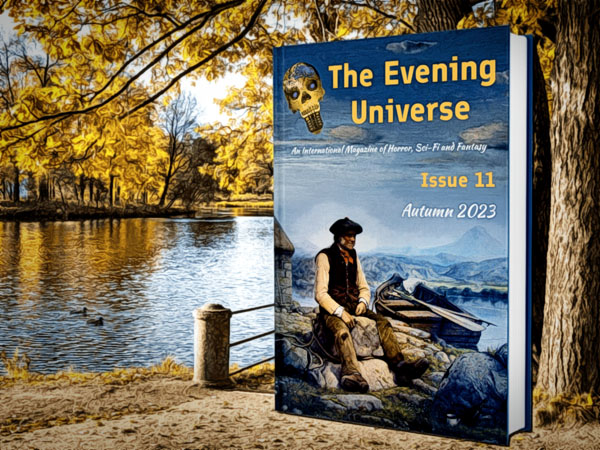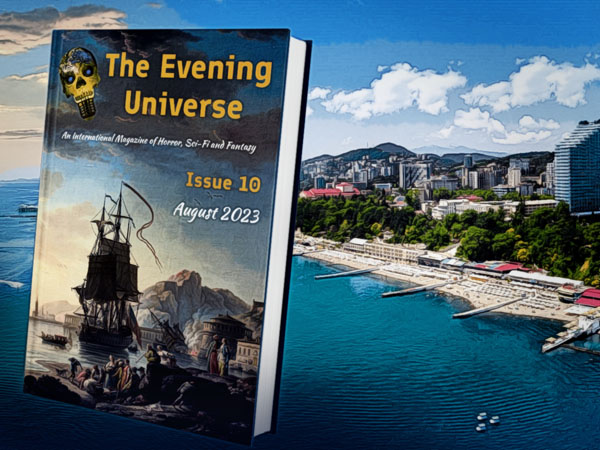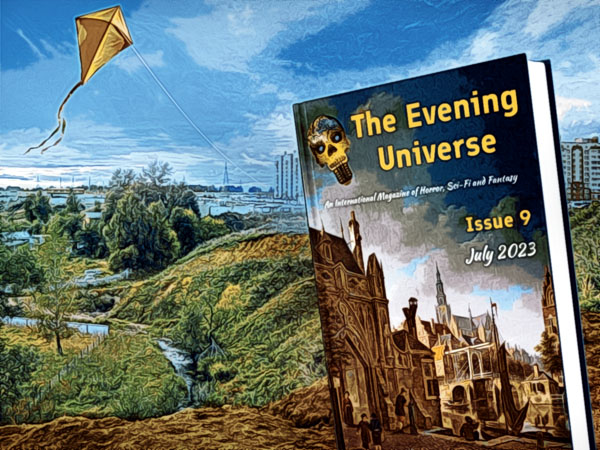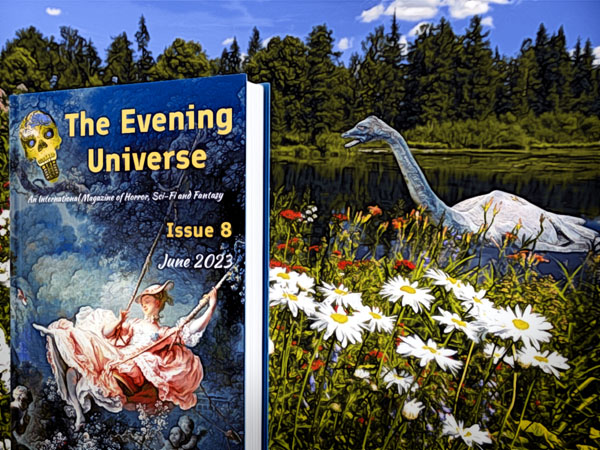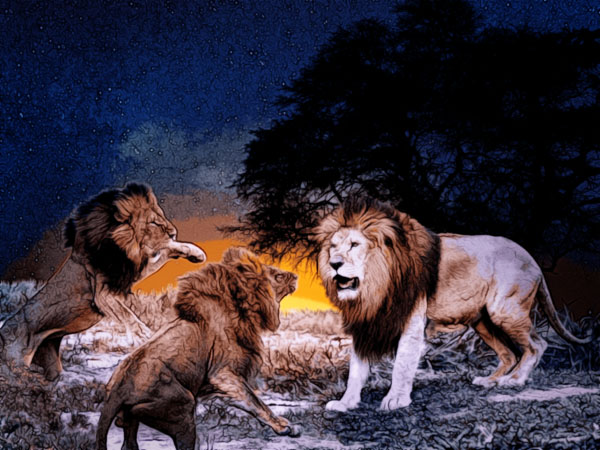
A king realized that his life was coming to an end—the old lion decided to leave his pride.
It would seem that the king of beasts had no reason to doubt his strength and power. His countless descendants even now terrify the inhabitants of the steppes north of the Sahara and forests on the outskirts of the Atlas Mountains. They have enough food, since many wild boars, deer and hartebeest antelopes live on the plateaus of North Africa.
Who could match the size and strength of the great lion, perhaps the only Barbary lion left in Africa?
The locals in the surrounding villages woke up in horror when they heard his roar in the night. His huge, black, shaggy mane—which grows on such lions due to an excess of the anger hormone—caused fear in young males that wandered the desert in search of prey and lionesses. During a fight, his mane was an insurmountable obstacle to their young fangs and claws. Who could be compared to the king himself? No one, except perhaps his own siblings—how beautiful they were! Are they alive? We all know that many of them were caught and kept in the zoos of the Moroccan king Hassan II and the Ethiopian emperor Haile Selassie I. But it is not known whether Barbary lions still exist in the wild, except this last gorgeous one.
The noble animal has seen a lot in his time, so he had nothing but contempt for the vicissitudes of fate. What would surprise the king of the prairies, who has reached the highest level of animal greatness? What new things, unknown to him earlier, could he discover? To drive away another defeated young lion, to mate another young lioness forty times a day or to break the back of another self-confident and disgusting hyena?
Family joys—the birth of cubs, their squeaks and games—did not please him much even in his youth, when he had just overthrown the former ruler and mastered the role of the lead male of the pride.
He was not particularly interested in collective hunting either. In such activities, first fiddle was played by the fast and merciless lionesses of his pride, and strengthening young lions helped them. It was below the king to hunt down, surround, catch and kill the prey. As soon as the lion became the sovereign, he only observed from afar the actions of his pride on the hunt in order to bring closer to himself and favor the most distinguished participants. In this area between Agadir and Marrakesh, once upon a time there were a lot of buffaloes, giraffes and even Carthaginian elephants, and they can still be found here now. His lionesses, with the assistance of young males, could defeat even such giants of the animal world. They took on all the work and risks, performing miracles of courage, since many of them were injured and even died from the blows of powerful animals during the hunt. The king approached the prey only when the deed was done. He came there slowly, his pride’s members ran off in all directions, and he got the lion’s share of the meat. The others were allowed to start feasting only after their sovereign finished his meal and stepped aside.
The king owned everything and everyone in the area. He drove away nomadic young lions that encroached on his place in the pride. He protected lionesses and cubs from attacks by jackals, hyenas or leopards. He gave way only to a herd of elephants if they crossed the pride area. So far, he has been doing great.
But many nights and moons passed, and he felt tired. The king was bored with females that were fighting for the role of the first lioness. He was weary of restless cubs always getting underfoot. He was fed up with haughty two-year-old male lions with sprouting manes, which were sure that the whole world and all the females exist only for them. Of course, they should be ejected from the family in time—leave the pride, look for new families and prove your right to become leaders there! How many times has he done this.
Now the former king is sure that he has left the tribe on his own initiative. He has reached such a level of animal royalty and dignity that he can afford to live alone. It seems to him that now he will be truly happy and free. But why does he roam so restlessly among the stunted dry bushes, why does he so often look around and sniff the air, what worries him? What obscure animal memories crowd in his huge royal head and torment him? Why did he leave his pride unattended, why does he violate the harmony and symmetry of nature, wandering alone in these wild prairies, where the obligatory condition “two of every sort” is established by heaven’s law?
No, he left his pride not because of some higher considerations—such things are beyond the understanding of a beast born to kill. He always has everything that a lion needs—cunning, dexterity, resourcefulness, and the honed skills of a hunter, brute and invincible strength, ruthlessness, and the instinct of a ruler…
The king does not want to admit to himself that he was simply kicked out of the pride. He became wearisome to everyone because of his idleness and his claim to total domination. Young lions themselves are already able to drive away nomads and protect cubs from the attacks of a leopard or hyenas. Why do they need a freeloader weighing almost two hundred and fifty kilograms? The youngsters together drove the king away from the killed hartebeest, and the lionesses did not interfere—perhaps they were too accustomed to the old lion, and habit kills fear. This has been going on for several days—the king was pushed back from the prey again and again, and he was allowed to eat almost after all the others. So he has had to leave his pride.
Evening comes. The old lion should eat something, but there are no living creatures around—no antelopes, not even mongooses; there are only bushes and termite mounds.
He wanders alone for three days without food, and every day he loses ten kilograms in weight, becoming weaker and weaker.
The sun is setting, and the shadow of the lone wandering lion is lengthening. The beast looks at his shadow, and the feeling of his own worthlessness and restlessness leaves him for a while. The lion thinks how huge and powerful he still is and that there is no other such majestic and powerful lion in nature. No, the former king is no longer as great and strong as before—his age, hunger and loneliness are doing their job. Nevertheless, he still gives the impression of being a monumental and kingly beast. He looks like the lord of the prairies who embodied the indomitable spirit of the wild nature and the mysterious magic of prehistoric darkness, the foremother of our world.
This evening the lion was lucky—he met a lone warthog, a male wild African pig, one of the ugliest creatures in the world. As warthogs become mature, they grow huge frightening fangs, four warts swell on their muzzles, and arrogant withers covered with stiff bristles rise behind their heads.
Why was the warthog alone? Perhaps it was looking for shelter for the night, running to hide in a termite mound or in the hole of an aardvark or porcupine until dark. This time the warthog did not have time to get to the shelter and became the prey.
Just as the Barbary lion began to eat, an unfamiliar monster appeared not far away. It did not run, but it did not crawl either, it moved somehow strangely and growled softly—nevertheless, there was no feeling of threat from this unfamiliar growling-rumbling. The monster—bigger than a buffalo—was moving right to the place of the lion’s meal. The king got up, obviously not intending to cede the prey to a stranger.
My companion slowed down our car and turned it so that we could clearly see the lion and his prey.
“I don’t understand you, why we stopped?” I asked. “It’s only a lion that decided to have a warthog for dinner. We just met a whole pride of such lions in the hollow, haven’t you seen them enough yet?”
“No, it’s not just a lion,” my friend replied. “This is a Barbary lion. Some people believe that they were exterminated ages ago, when ancient Romans organized arena fights between such lions and Turanian tigers. Look how big he is! The lion is old and he will die soon. Let’s shoot him and bring home his beautiful skin.”
“No, let him live.”
The rumbling stopped, and the monster showed no signs of life.
The former king decided to continue his meal, but at that moment he heard the roar from somewhere on the side of the mountains—the roar of the one lion, then the roar of the other. The sound was so lingering and deep that there was no doubt that the strangers were young and strong males.
In the fading light, a dark wide strip appeared right in the place where the sky merged with the earth. There, in a humid oasis, was his whole family—lionesses with cubs, and impudent youngsters with skimpy manes. The old lion observed them all the time, trying to remain unnoticed. Such things were probably unworthy of the former king of the great pride, but he really enjoyed sniffing footprints and broken branches, finding out who walked here or there or who fought with whom and so on. The outcast lion has not yet learned to live alone. He foresaw bad things. His pride evicted him too early. The nomadic lions, hungry for pray and females, were coming. Who will protect his family from the strangers?
The old lion knew that if new sovereigns will conquer his pride, they will kill and eat all the cubs and young lions. He was the only hope for salvation for his family.
Yes, the lion came from the prehistoric darkness of our world, and he was the embodied spirit of the cruel desert. But somehow he got a small piece of soul and light. And now, inside a terrible creature ideally adapted for killing everybody, something that looks like a loving heart was trembling since the lion heard the roar of the strangers and realized that his pride was in mortal danger.
The king remembered his previous battles and victories, the anger hormone hit his blood, and he instantly decided to take the fight. A mighty roar of the king of beasts swept over the ledges of the steppe plateau.
“Look, villains are coming,” my companion said. “There are two of them, the Barbary lion cannot withstand the fight, he is doomed to die. Let’s shoot these newcomers or try to scare them off with our shots.”
“Don’t intervene, please. Battle and death are the happiness and destiny of the old warrior. What is meant to happen will happen.”
In a struggle for a pride, lions usually just do their best to roar louder and intimidate their opponents. They prefer not to get into a real fight, because they understand that the victors as well as the vanquished will die from the wounds sooner or later.
Now the old lion was alone, and this was his end. He knew that help would not come—neither from his family, nor from the empty sky, nor from impregnable termite mounds. But he was not going to give in to the strangers. He chose to fight.
The heart-rending roar was carried over ten or more kilometers and lasted for several hours. The desert could not sleep. Its inhabitants—a pride of lions, a family of warthogs, and aardvarks with porcupines that went out to hunt, and herds of antelopes and deer, and hyenas with jackals, and residents of nearby villages, and we, casual witnesses of this struggle—everyone was waiting for the end of the battle.
The lions did not fight for the warthog, they fought for the continuation of their kind. They fought, not paying attention to the presence of the car and people. We saw and heard how the mighty bodies of the rulers of the African wastelands collided with each other and hit the ground. Finally, the jaws of one of the strangers closed on the Barbary lion’s spine and tore his vertebrae apart—there was a loud snap, and the former king exploded into a roar of rage and despair. His back legs were motionless, but the claws of his front paws as well as his teeth continued to tear the flesh of the enemy out of inertia. His movements became slower and his roar became quieter.
While the dragons of the night didn’t come from the dark caves of the sunset, we were able to see in the twilight how the black-maned lion turned his bloodied muzzle toward the narrow red stripe of the sun. His opponents fell silent as if they understood the importance of the moment, and boundless calm spread around. It seemed to the former king that he was seeing some unfamiliar mountain range covered with eternal snows. Close to one of the summits there was the dried and frozen carcass of a leopard. What the leopard was seeking at that altitude? He saw three of the big birds squatted obscenely, while in the sky a dozen more sailed, making quick-moving shadows as they passed*—it was a sure sign that warm, fresh prey was about to appear somewhere.
The evening breeze brought to the old king the grumbling and roaring of his free and happy relatives that stayed in the humid hollow. He would not be able to get there—the curtain was about to fall. The lion looked at the sun for the last time—no, he didn’t care about its crimson rays. He only wanted to call the sun to witness that the king of the pride has done everything to protect his females and cubs. He was passing away, but he knew that the bleeding and crippled strangers would not become the rulers of his pride—the lionesses would not let weaklings near them.
“Here you are,” I said to my companion. “Now you will be able to replenish your collection with a rare skin without killing a healthy animal. And if we wait a little, we will get two more skins of these unwise strangers.”
My friend did not find words to answer. The death of the king was not a business project.
The lion was laying on his side, eyes closed and legs stretched out. His opponents struggled to get on their paws.
The first stars appeared in the sky. We heard the dying sounds of the Barbary lion—an indistinct murmur and a gurgling of blood in his throat. We did not see anything else. Perhaps some tiny piece of his spirit flew off to heaven, but we—ordinary, sinful people—could not notice this at all.
Was there the tiny bit of spirit in the fiery heart of the lion? Saint Luke, whose secular name was Valentin Voyno-Yasenetsky, was probably a good judge of it. He stated that not only people inherit immortality, but that “every creature groans and travails in pain until now, with hope awaiting the revelation of the sons of God, since even animals will find their place in the future new universe where they will be enjoying quiet happiness, living in harmony with the new bright nature and people who will no longer torment and kill them.” However the wisest Jerome, who assumed that elephants, some domestic animals and even certain types of birds may have a rudimental soul, did not say anything about lions even though it is somehow customary in the Western European tradition to depict him wandering around the desert of Chalcis accompanied by a lion.
I wonder which of them was closer to the truth.
But on the other hand, is it so important? And how could the European saints know at least something about the great Barbary lions that once lived in Africa?
* The text in italics here is loosely quoted from Ernest Hemingway’s short story “The Snows of Kilimanjaro.”

